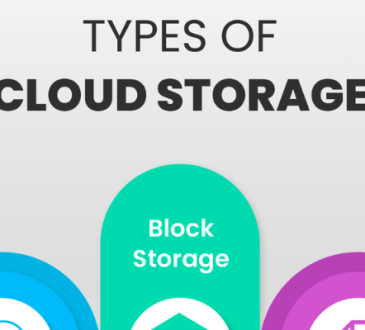
In the digital age, data has become the lifeblood of modern businesses and individuals alike. The exponential growth of data has led to an increasing demand for reliable, scalable, and cost-effective storage solutions. Enter cloud storage – a revolutionary concept that has transformed the way we manage and store our valuable data. In this article, we will delve into the world of cloud storage solutions, exploring their benefits, types, key players, security concerns, and future prospects.
Contents
Understanding Cloud Storage
Cloud storage is a model of data storage where digital data is stored in logical pools across multiple servers, typically hosted and maintained by a third-party provider. Users can access their data over the internet through various devices, making it a convenient and flexible storage solution.
Advantages of Cloud Storage Solutions

Scalability: Cloud storage offers the ability to scale storage resources up or down based on the user’s needs. This scalability ensures that organizations can accommodate data growth without the need for expensive hardware upgrades.
Cost Efficiency: Cloud storage eliminates the capital expenses associated with purchasing and maintaining physical storage hardware. Users pay for the storage they actually use, resulting in cost savings and better budget management.
Accessibility: Cloud storage enables users to access their data from anywhere, using any internet-connected device. This accessibility fosters collaboration and remote work opportunities.
Data Redundancy: Leading cloud storage providers implement redundant data storage mechanisms across multiple data centers, ensuring data durability and availability, even in the event of hardware failures.
Types of Cloud Storage Solutions
A. Public Cloud Storage
Public cloud storage services are provided by third-party vendors on the internet. These vendors own and operate the infrastructure, offering their services to the general public over the internet. Examples of public cloud storage providers include Amazon Web Services (AWS), Microsoft Azure, Google Cloud, and Dropbox.
B. Private Cloud Storage
Private cloud storage solutions are dedicated and operated by a single organization, either on-premises or in a data center. These storage systems provide greater control over data security and customization but require higher upfront investments.
C. Hybrid Cloud Storage
Hybrid cloud storage combines elements of both public and private cloud solutions. Organizations can store sensitive data on a private cloud while utilizing the public cloud for less sensitive or temporary data storage needs. This approach offers flexibility and cost optimization.
Key Players in Cloud Storage Solutions

A. Amazon Web Services (AWS)
AWS, a subsidiary of Amazon, is one of the leading providers of cloud storage solutions. With a wide array of services like Amazon S3, Amazon EBS, and Amazon Glacier, AWS caters to diverse storage requirements, from real-time data access to long-term archival storage.
B. Microsoft Azure
Microsoft Azure is a cloud computing platform that includes various storage services like Azure Blob Storage, Azure Files, and Azure Disk Storage. Azure’s integration with other Microsoft services makes it a preferred choice for businesses heavily invested in Microsoft’s ecosystem.
C. Google Cloud Platform (GCP)
Google Cloud Platform offers cloud storage services such as Google Cloud Storage and Google Cloud Filestore. Known for its robust infrastructure and data analytics capabilities, GCP appeals to businesses seeking performance and analytics-driven insights.
D. Dropbox
Dropbox is a user-friendly cloud storage provider focused on file synchronization and sharing. It has gained popularity among individual users and small businesses due to its simplicity and ease of use.
Security Concerns and Solutions
A. Data Privacy and Compliance
One of the primary concerns with cloud storage is the security and privacy of data. To address these concerns, cloud providers implement various security measures, including encryption, access controls, and compliance certifications. Users must also adopt best practices, such as strong password policies and multi-factor authentication.
B. Data Breaches
Data breaches can occur due to vulnerabilities in cloud infrastructure or human error. Cloud providers must continuously update their security protocols, conduct regular audits, and improve threat detection systems. Additionally, users should encrypt sensitive data before uploading it to the cloud.
C. Data Ownership and Sovereignty
Some users may be concerned about data ownership and where their data physically resides. Understanding the terms of service and geographical location of the data centers used by the cloud provider is essential to address these concerns.
Future of Cloud Storage Solutions

The future of cloud storage looks promising, with ongoing advancements in technology. Some key trends to watch out for include:
A. Edge Computing
Edge computing aims to reduce data latency by processing data closer to the source, enabling faster and more responsive cloud services. It complements cloud storage solutions by improving data processing and reducing reliance on centralized data centers.
B. Quantum Storage
The integration of quantum storage solutions could potentially revolutionize data storage with unparalleled data density and security. While still in the early stages of development, quantum storage holds great promise for the future of cloud storage.
C. AI-Driven Storage Optimization
Artificial Intelligence (AI) and machine learning algorithms will play a significant role in optimizing cloud storage resources, ensuring efficient data distribution, and predicting user storage needs.
Conclusion
Cloud storage solutions have become an integral part of modern data management strategies. With the ability to scale, cost-effectiveness, accessibility, and robust security measures, cloud storage has transformed the way organizations and individuals store and manage their data. As technology continues to evolve, we can expect cloud storage to become even more sophisticated, catering to a broader range of needs and cementing its position as a fundamental pillar of the digital world.



